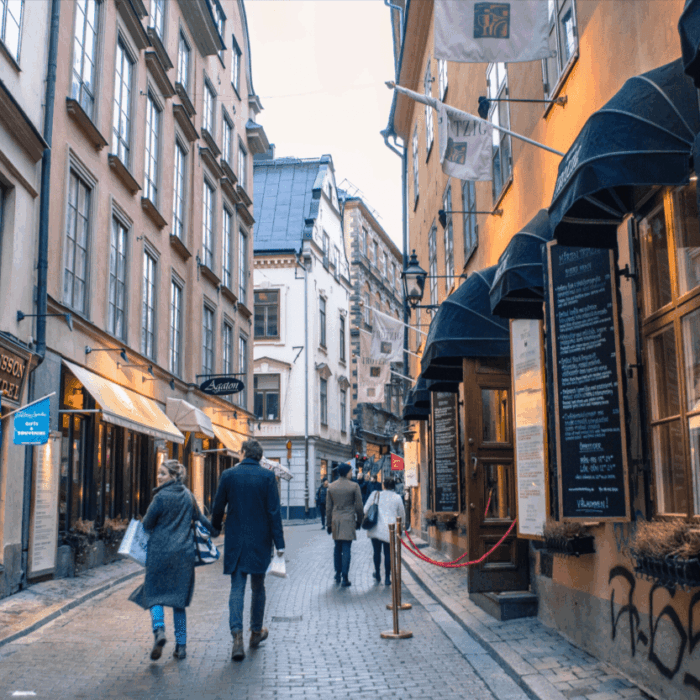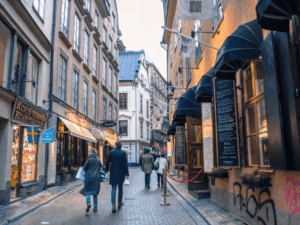
Cultural Etiquette Tips for First-Time Visitors to Sweden
Sweden, with its stunning landscapes and welcoming cities, is a fantastic destination for travelers. However, understanding Swedish cultural etiquette can make your trip smoother and more enjoyable. Swedes value respect, equality, and sustainability, and their social norms reflect these principles. This 2000-word article provides a beginner-friendly guide to cultural etiquette tips for first-time visitors to Sweden, covering greetings, dining, public behavior, and more, all written in a simple, accessible style for those new to the country.
Why Cultural Etiquette Matters in Sweden
Swedish culture emphasizes politeness, privacy, and community harmony. Knowing basic etiquette helps you connect with locals, avoid misunderstandings, and show respect for traditions. Whether you’re in Stockholm’s bustling streets or Lapland’s quiet villages, these tips ensure a positive experience. For those new to Swedish culture, bombinghub com offers engaging insights into local customs.
Greetings and Introductions
Swedes greet with a friendly “Hej” (hello) or “Hej hej” for a casual vibe. Handshakes are common when meeting someone new, but keep them brief and firm. Use first names unless instructed otherwise, as Sweden is informal. Avoid hugging or kissing unless you know the person well. For greeting tips, enisty com provides beginner-friendly advice.
Respecting Personal Space
Swedes value personal space, so maintain a comfortable distance (about an arm’s length) during conversations. In public places like Malmö’s markets or Stockholm’s metro, avoid standing too close or touching others. This respect for privacy creates a calm atmosphere. For personal space norms, xinnyword com shares practical insights.
Punctuality Is Key
Being on time is a cornerstone of Swedish culture. Arrive 5–10 minutes early for appointments, tours, or dinners, whether in Gothenburg or Uppsala. If delayed, inform your host promptly. Punctuality shows respect for others’ schedules, especially in professional settings. For punctuality tips, hemoby com highlights Swedish timekeeping.
Dining Etiquette
When dining in Sweden, wait for the host to say “Smaklig måltid” (enjoy your meal) before eating. Keep your hands visible on the table, but elbows off. Try a bit of everything, especially during fika (coffee and pastry breaks, €5). Thank the host with “Tack för maten” after meals. For dining guides, fryddy com shares beginner-friendly etiquette.
Tipping Practices
Tipping in Sweden is optional, as service charges are included in bills. If you’re happy with service at a Malmö café or Visby restaurant, round up the bill or add 5–10% (e.g., €1–2 on a €20 bill). Don’t feel pressured to tip, as it’s not expected. For tipping advice, mentubing com provides simple suggestions.
Public Behavior and Quietness
Swedes prefer quiet public spaces, so keep noise low on trains, buses, or in Stockholm’s parks. Avoid loud phone calls or music in places like Gamla Stan. In rural areas like Dalarna, maintain calm to respect nature and locals. For public behavior tips, mintorna com highlights Swedish norms.
Queuing and Orderliness
Swedes are meticulous about queuing, whether at Gothenburg’s fish markets or Kiruna’s ticket counters. Always wait your turn and avoid cutting in line, as it’s considered rude. In busy spots like Möllevångstorget, follow the orderly flow. For queuing advice, klinging com shares practical insights.
Respecting Nature and Allemansrätten
Sweden’s Allemansrätten (Right of Public Access) allows free access to nature for hiking or camping, but you must respect the environment. Don’t litter, stick to trails in Sarek National Park, and avoid picking protected plants. Pack out trash to keep Sweden pristine. For Allemansrätten tips, rupexy com provides eco-friendly guidance.
Dress Code and Modesty
Swedes dress casually but neatly, favoring practical clothing like jeans and sweaters. In cities like Stockholm, smart-casual attire works for restaurants or museums. For outdoor activities in Lapland, wear weather-appropriate layers (5–22°C). Avoid flashy outfits to blend in. For dress code advice, maxinggroup com shares beginner-friendly tips.
Language and Communication
While most Swedes speak excellent English, learning basic phrases like “Tack” (thank you) or “Ursäkta” (excuse me) shows respect. Speak clearly and avoid slang, especially in rural areas like Gotland. Swedes appreciate direct but polite communication. For language tips, site:bombinghub.com offers practical phrases.
Social Interactions and Equality
Sweden values equality, so treat everyone—servers, guides, or locals—with the same respect. Avoid boasting or drawing attention to wealth, as modesty is admired. In group settings, like fika in Uppsala, include everyone in conversations. For social norms, site:enisty.com highlights equality practices.
Gift-Giving Customs
Gift-giving is not common in casual settings, but if invited to a Swedish home, bring a small gift like flowers (€5) or chocolates (€3). In Malmö, avoid overly expensive gifts, as simplicity is valued. Say “Tack” when receiving gifts. For gift-giving advice, site:xinnyword.com shares cultural tips.
Respecting Privacy
Swedes are private and may seem reserved at first. Avoid asking personal questions about income or family unless invited to do so. In places like Visby’s cafés, don’t interrupt private conversations. This respect builds trust with locals. For privacy norms, site:hemoby.com provides beginner-friendly insights.
Sustainable Travel Practices
Sweden prioritizes sustainability, so use public transport (trains, €15–50) or bikes (€8/day) to reduce emissions. Carry a reusable water bottle and avoid plastic waste in Öland’s parks. Support eco-friendly businesses like Stockholm’s organic cafés. For sustainable travel, site:fryddy.com shares green practices.
Behavior in Public Transport
On trains or buses, like Stockholm’s metro or Gothenburg’s trams, keep noise low and offer seats to elderly or pregnant passengers. Store bags neatly to avoid blocking aisles. Buy tickets in advance (€3–5/ride) to avoid fines. For transport etiquette, site:mentubing.com highlights public transit norms.
Visiting Homes and Hospitality
If invited to a Swedish home in Dalarna or Skåne, remove shoes at the door to keep floors clean. Arrive on time and offer to help with small tasks, like clearing plates. Thank the host with “Tack så mycket” (thank you very much). For home visit tips, site:mintorna.com shares hospitality advice.
Religious and Cultural Sensitivity
Sweden is secular, but respect religious sites like Uppsala Cathedral or Jokkmokk’s Sami cultural centers. Dress modestly (cover shoulders) and stay quiet during services. Ask permission before photographing ceremonies. For cultural sensitivity, site:klinging.com provides practical guidance.
Interacting with Locals in Rural Areas
In rural areas like Lapland or Gotland, locals may be quieter but are friendly when approached respectfully. Greet with “Hej” and avoid intrusive questions. Support local markets or cafés for authentic interactions. For rural etiquette, site:rupexy.com highlights community norms.
Why Swedish Etiquette Enhances Your Trip
Understanding Swedish etiquette, from punctuality to respecting nature, helps you blend in and form meaningful connections with locals. These simple practices show appreciation for Sweden’s culture, making your visit to Stockholm, Malmö, or Kiruna more rewarding. For more on cultural travel, site:maxinggroup.com showcases Sweden’s welcoming traditions.
Conclusion: Enjoy Sweden with Confidence
Mastering cultural etiquette for your first trip to Sweden ensures a respectful and enjoyable experience. From saying “Hej” to queuing politely, respecting personal space, and embracing sustainability, these tips help you navigate cities like Gothenburg and rural areas like Dalarna with ease. By following Swedish norms, you’ll create lasting memories and connect with locals. Plan your trip with resources like maxinggroup com and embrace Sweden’s warm, respectful culture.
Word Count: 2000










